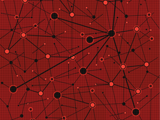IMDEA Networks

Archives: Events
The ICSI Haystack: A Tool to Illuminate the Dark Side of the Mobile Ecosystem
As a society we have come to rely upon our mobile phones for myriad daily tasks. It is striking how...
Read more arrow_right_altPreparing Income Tax Returns in the Cloud | Entropy as a Measure of Privacy
Despite the growing popularity of virtualized services, privacy in the cloud remains an unresolved problem. Companies, such as Turbo Tax, are selling services that prepare income tax returns on-line, in the cloud. However, when the Turbo Tax computer site is compromised, all of its customer’s personal data will be released. Experience dictates that all computer sites are eventually hacked or compromised by human failures.
Read more arrow_right_altSome Approaches to Wireless Sensor Networks, IoT, and the Internet of People
Several challenges persist in what concerns wireless sensor networks, the Internet of Things, and the use of these technologies in human-centric environments.
Read more arrow_right_altI Always Feel Like Somebody’s Watching Me. Measuring Online Behavioral Advertising
Online Behavioral targeted Advertising (OBA) has risen in prominence as a method to increase the effectiveness of online advertising. OBA operates by associating tags or labels to users based on their online activity and then using these labels to target them.
Read more arrow_right_altAdaptive Overlays: Peer-assisted Event Dissemination and Distributed Data Collection for Dynamic Mobile Networks
The rising number of mobile devices and their increasing computational capabilities enable new interactive context-sensitive applications.
Read more arrow_right_altPolicy Management for the Cloud (presentation 1) / Load Balancer as a Service for the Cloud (presentation 2)
In today’s vertiginous business landscape, organizations are constantly looking at ways of introducing agility and cost efficiencies.
Read more arrow_right_altRIASC: Towards coordinated resilience networks based on Software defined Networks
Recently, the University of Leon with the support of the Spanish National Institute of Cybersecurity has established the Research Institute of Applied Sciences in Cybersecurity (RIASC). This new institute has three main missions: research, education and transfer technology in cybersecurity. In this framework, RIASC has launched (jointly with other national and international institutions) the research Project MITHRA – “Multi-distributed Intelligence Towards Higher Resilience Assets”.
Read more arrow_right_altPhD Thesis defense: Distributed Mobility Management for a Flat Architecture in 5G Mobile Networks: Solutions, Analysis and Experimental Validation
In the last years, the commercial deployment of data services in mobile networks has been evolving quickly, providing enhanced radio access technologies and more efficient network architectures.
Read more arrow_right_altLooking forward with Information Centric Networks
Today the Internet, as we know it, stands as an increasingly important element in every societal domain. Never before have people (and machines) had such an amount of potential content at their fingertips (or interfaces), and different ways to share it.
Read more arrow_right_altSteering with Eyes Closed: Millimeter Wave Beam Steering without In-Band Measurement
Spectrum scarcity and ever increasing densities of wireless network deployments have recently led to an opening of the 60 GHz millimeter-wave bands for unlicensed communication. In contrast to the previously used ISM bands below 5 GHz, a massive amount of 6-9 GHz of bandwidth is available at these frequencies. Usage of these resources is considered for wireless LAN and 5G cellular networks and with the ratification of the IEEE 802.11ad standard in December 2012, wireless LAN is about to bring millimeter-wave communication to the commercial market.
Read more arrow_right_alt











Recent Comments